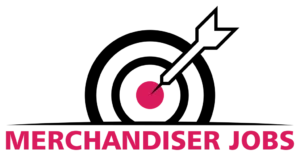Tips for Writing an Effective Cover Letter: Boost Your Job Application
A well-crafted cover letter can make all the difference in landing your dream job. Whether you’re a recent graduate or a seasoned professional, mastering the art of writing an effective cover letter is essential.
This article will provide you with actionable Tips for Writing an Effective Cover Letter that grabs the attention of hiring managers and sets you apart from the competition.
Understanding the Importance of a Cover Letter
Why Do Employers Care About Cover Letters?
The Role of Keywords in Cover Letters
When it comes to crafting a standout cover letter, understanding the importance of this document is crucial. Here’s why employers value cover letters and why you should too.
Why Do Employers Care About Cover Letters? Employers receive countless job applications for each position they advertise. A well-written cover letter allows you to introduce yourself, highlight your qualifications, and demonstrate your enthusiasm for the position.
It provides employers with insight into your personality, communication skills, and attention to detail – qualities that are often overlooked in a resume alone.
The Role of Keywords in Cover Letters
In today’s digital age, many companies use applicant tracking systems (ATS) to streamline the hiring process. These systems scan resumes and cover letters for specific keywords and phrases related to the job description. Including relevant keywords in your cover letter increases the likelihood of it getting noticed by ATS and human recruiters alike.
Tips for Writing an Effective Cover Lette
- Tailor Your Cover Letter to the Job Description
- Use a Professional Format and Tone
- Highlight Your Achievements and Skills
- Keep It Concise and Relevant
Now that you understand the importance of a cover letter, let’s dive into some practical tips for writing one that stands out.
Tailor Your Cover Letter to the Job Description
One of the most common mistakes job seekers make is sending out generic cover letters. Instead, take the time to tailor each cover letter to the specific job you’re applying for. Carefully read the job description and identify the key requirements and qualifications.
Then, customize your cover letter to highlight how your skills and experience align with what the employer is looking for.
Use a Professional Format and Tone
Your cover letter should follow a professional format and tone. Use a standard business letter format, with your contact information at the top, followed by the date and the employer’s contact information. Begin your cover letter with a professional greeting, such as “Dear Hiring Manager,” and use a formal tone throughout the document.
Lorem ipsum dolor sit amet, consectetur adipiscing elit. Ut elit tellus, luctus nec ullamcorper mattis, pulvinar dapibus leo.
Highlight Your Achievements and Skills
Use your cover letter to showcase your relevant achievements and skills. Provide specific examples of how your past experiences have prepared you for the role you’re applying for. Whether it’s increasing sales revenue, leading successful projects, or developing innovative solutions, highlight the accomplishments that demonstrate your value as a candidate.
Keep It Concise and Relevant
While it’s important to provide enough detail to support your candidacy, it’s equally important to keep your cover letter concise and to the point. Aim for a length of no more than one page, and focus on the most relevant information. Avoid repeating what’s already in your resume – instead, use your cover letter to provide additional context and insights that aren’t captured elsewhere.
Common Mistakes to Avoid
- Sending a Generic Cover Letter
- Overlooking Spelling and Grammar Errors
- Focusing Too Much on Yourself
While knowing what to include in your cover letter is important, it’s equally crucial to avoid common pitfalls that can undermine your efforts.
Sending a Generic Cover Letter
As mentioned earlier, sending out a generic cover letter is a surefire way to blend in with the crowd. Take the time to personalize each cover letter you send, and tailor it to the specific job and company you’re applying to. This extra effort will not go unnoticed by hiring managers.
Overlooking Spelling and Grammar Errors
Spelling and grammar mistakes can detract from the professionalism of your cover letter and create a negative impression with employers. Before sending out your cover letter, carefully proofread it for any errors. Consider asking a friend or colleague to review it as well, as fresh eyes can often catch mistakes that you might have missed.
Focusing Too Much on Yourself
While it’s important to highlight your qualifications and achievements, remember that your cover letter should ultimately be about how you can benefit the employer. Instead of solely focusing on what you want out of the job, emphasize what you can bring to the table and how you can contribute to the company’s success.
FAQs about Tips for Writing an Effective Cover Letter
How long should a cover letter be?
A cover letter should typically be no longer than one page. Aim for around 250 to 400 words, keeping it concise and to the point.
Should I include references in my cover letter?
No, references should not be included in your cover letter. Save them for a separate document that you can provide upon request.
Is it necessary to address the hiring manager by name in the cover letter?
While addressing the hiring manager by name can personalize your cover letter, it’s not always possible to obtain this information. If you can’t find the hiring manager’s name, using a generic greeting such as “Dear Hiring Manager” is acceptable.
How long should a cover letter be?
A cover letter should typically be no longer than one page. Aim for around 250 to 400 words, keeping it concise and to the point.
Should I include references in my cover letter?
No, references should not be included in your cover letter. Save them for a separate document that you can provide upon request.
Is it necessary to address the hiring manager by name in the cover letter?
While addressing the hiring manager by name can personalize your cover letter, it’s not always possible to obtain this information. If you can’t find the hiring manager’s name, using a generic greeting such as “Dear Hiring Manager” is acceptable.
Can I use the same cover letter for multiple job applications?
While it’s tempting to use a generic cover letter for multiple job applications, it’s not recommended. Tailoring your cover letter to each specific job and company increases your chances of standing out to employers.
Should I include salary expectations in my cover letter?
It’s generally best to avoid discussing salary expectations in your cover letter unless the job posting specifically requests this information. Salary negotiations typically occur later in the hiring process, so focus on highlighting your qualifications and interest in the position instead.
Writing an effective cover letter is a skill that can significantly improve your job prospects. By following the tips for writing an effective cover letter in this article and avoiding common mistakes, you can create a compelling cover letter that grabs the attention of hiring managers and increases your chances of landing an interview.
Remember to tailor each cover letter to the specific job you’re applying for, and don’t forget to proofread carefully before sending it off. With the right approach, your cover letter can be the key to unlocking exciting new career opportunities.





